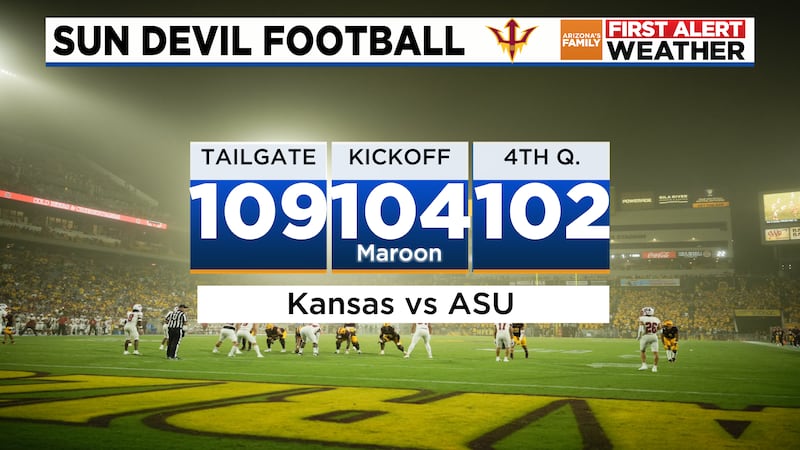ASU study shows extreme heat’s impact on society
PHOENIX (AZFamily) — Arizona State University released a new study Wednesday in the midst of a record-breaking heatwave across Arizona. Researchers began writing the paper during a record-breaking summer in 2023 and finished it as the fall got off to its hottest start on record in the Valley.
Professor Ram Pendyala teaches students at the School of Sustainable Engineering and the Built Environment at the Ira A. Fulton School of Engineering.
He was one of the researchers who wanted to find out how extreme heat impacts human patterns and how we get around. He believes more extreme heat is the trend in the future.
“This is a serious issue that needs to be addressed, and it impacts quality of life,” Pendyala said. “How can we facilitate people undertaking activities and moving around accessing their jobs and other opportunities in a way that minimizes exposure?
Pendyala says their research shows that when the temperatures are cranking, people tend to stay inside and at home more often. However, those who cannot afford to stay home and need to work can be more exposed to heat and heat illnesses.
“Severely curtails the outdoor activities that people participate in. Less socialization, less shopping, less social recreation.”
The professor says lower-income people are impacted most. Those without a car who rely on walking or biking to get to places can be exposed to the heat and put their health at risk.
“We can have cooling centers all we want, but people need to get to work people need to shop people need to socialize.”
The study looked at northern cities and how they handle freezing temps and snow. The professor says Arizona could do something similar to the “snow days” people in the north have.
“They declare snow days. And close schools and work places. We should be thinking about the same for extreme heat conditions and claim extreme heat days.”
Pendyala also thinks vouchers for people without a car to find a ride to work would be helpful. It would bring people door to door and help those who couldn’t afford Uber rides over and over to work.
Cities like Minneapolis, Minnesota, have “skywalks” or hallways connecting buildings so people do not have to walk outside during the nastiest winter weather.
Pendyala says that should be something we consider around the Valley so people can stay indoors during the hot summer months.
Read the full comprehensive study below
See a spelling or grammatical error in our story? Please click here to report it.
Do you have a photo or video of a breaking news story? Send it to us here with a brief description.
Copyright 2024 KTVK/KPHO. All rights reserved.









